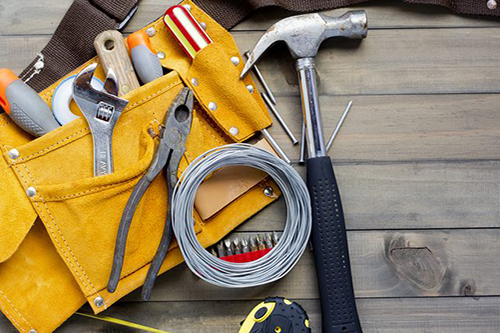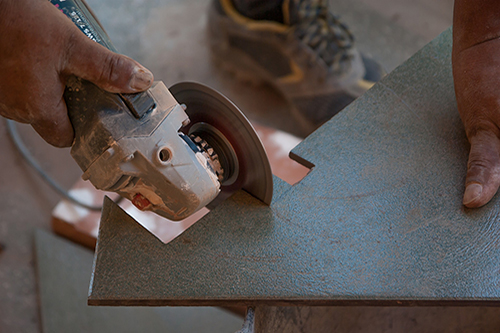Accredited Programmes
Protech Training has high standards when it comes to training. Our programmes are accredited by various Sector Education and Training Authorities (SETAs). We deliver on qualifications that conform to the requirements of the NQF Levels. Having a qualification offered at Protech Training will assist you with any career of your choice and render you employable. Our courses cater for employed and unemployed learners. All programmes offered are pegged according to a specific NQF Level.
LEARNERSHIP PROGRAMMES

Our Learnership programmes are designed to assist with the development of your learning programme in line with the qualification. The learning programme is divided up into a number of learning blocks: Consecutive days of facilitation which deal with a cluster of unit standards. This ensures that the correct amount of facilitation (notional hours) and work place experience is allocated to each cluster of unit standards/block of training. Unit Standards consists of a number of credits. Credits are the number of notional hours required for achieving the learning outcomes. Notional hours include study time, assisgnments, on job training and assessments. The credit rating system rates ten (10) notional hours as equivalent to one credit. The ratio of theory to practical = approx. 30:70. Therefore, 30% of total hours = “classroom” facilitation and 70% = on job training; The delivery of facilitation is structured to allow learners to attend facilitation before reporting to the workplace where they are able to practice and demonstrate the newly – facilitated learning skills with as short delay as possible.
SKILLS PROGRAMMES

Our Skills Programmes represent shorter training interventions that are packaged either to enhance the skills of a worker in a very specific area; or prepares the worker for a very specific job or skill. Protech Training together with employers and SETA package these shorter interventions in such a way that the achievement of three of more unit standards leads to specific occupation. After completion Protech Training issues a certificate of attendance and SETA the statement results. These shorter interventions when combined may address all of the unit standards required for the award of a qualification.
APPRENTICESHIP

An “Apprenticeship” is a non-unit standard based registered qualification and comprises of an integration of workplace and institutional learning and culminates in a national qualification. During the programme you will be taught the skills and practices that are associated with a given career path.
TRADE TEST

To become a qualified Electrical artisan you have to pass a trade test from an accredited Centre quality assured by NAMB and by the Quality Council for Trades and Occupations (QCTO). Protech Training is an accredited decentralized Electrician Trade Test Centre. It is recommended that a person wishing to be Trade Tested should first enroll for Trade Test preparation then test. DURATION: Two (2) Days TRADE TEST PREPARATION The Electrical Trade Test Preparation course is for the electrician with experience that would like to write trade test. This course will ensure that you are well prepared before writing the test by practically testing all aspects of the trade, identifying the gaps and ensuring that those gaps are covered. DURATION: 4 Weeks Full Time REQUIREMENTS: N2 Certificate including the relevant trade theory subjects and a minimum of 3 years relevant work experience; or Technical trade theory programs quality assured by a SETA deemend to be at NQF level 3 and a minimum of 3 years relevant work experience; or Relevant Engineering NCV at NQF level 3 and a minimum of 3 years relevant work experience; or Relevant engineering NC(V) 4 plus completion of all relevant work experience modules and a minimum of 18-months relevant work experience; or Technical Grade 12 with Maths, Science and related trade theory subject and a minimum of 3 years relevant work experience; or Grade 9 and a minimum of 4 years relevant work experience; or Relevant (directly related to the trade theory subjects) N6 certificate or National Technical Diploma (T,S or N stream.) with 18 months relevant work experience

Electrician
OUTCOMES
The learner who will undertake this training and is found competent will be to:
- Plan and prepare work site, equipment, tools, consumables and materials for electrical activities and operations.
- Install, wire and connect electrical equipment and control systems.
- Test and inspect electrical equipment, control systems and installations.
- Commission control systems and installations. Maintain and repair electrical equipment, control systems and installations.
REQUIREMENTS
- NQF Level 1 with Mathematics and Science

Basic Handyman
OUTCOMES
- General safety principles
- Inspection basics
- Cleaning and general aesthetics
- Business and customer relationships
- Basic tool and material use care and handling
- Basic maintenance skills
- Basic electrical maintenance
- Basic welding skills
- Basic plumbing skills
- Basic bricklaying and plastering skills
- Basic woodworking skills
- Life skills training
- Customer service and conduct
- Personal finance handling
- Aids awareness
REQUIREMENTS
- Grade 9

Welder
OUTCOMES
The learner who will undertake this training and is found competent will be to:
- cut, gouge and gas weld ferrous materials
- Weld ferrous materials including stainless steel using Shielded Metal Arc
- Welding Weld ferrous and non-ferrous materials using Gas Metal Arc
- Welding processe
- Weld ferrous and non-ferrous materials using the Gas Tungsten Arc Welding process
REQUIREMENTS
- NQF Level 1 with Mathematics and Science.
- Grade 9
- Learner must 16 years old.

Bricklayer
OUTCOMES
The learner who will undertake this training and is found competent will be to:
- Work as a multi-skilled practitioner and to register as a community house builder
- Have a basic understanding of the construction industry and how he or she is expected to operate within the legislative, safety and quality systems that govern the workplace
REQUIREMENTS
- Equivalent of NQF Level 1 (ABET Level 4) numeracy and literacy
- Grade 9
- Learner must 16 years old

Plumber
OUTCOMES
The learner who will undertake this training and is found competent will be to:
- Apply understanding of the functioning of plumbing systems to install, test and maintain them in a built environment
- Apply fault – finding techniques to diagnose and repair installed plumbing systems
- Applying the appropriate tools and materials for different plumbing activities
REQUIREMENTS
- National Certificate: Plumbing L2 (or equivalent)
- Grade 9
- Learner must 16 years old

Painter
A painter paints interior & exterior walls, ceilings & floors, window & door frames, skirting boards, timber and steel also decorating.

Tiler
A Tiler is a person who works on a building site or in an existing building where renovations are taking place.

Carpenter
A carpenter is a skilled trade in which the primary work performed is the cutting, shaping and installation of building materials during the construction of buildings, ships, timber bridges, concrete formwork, etc.
